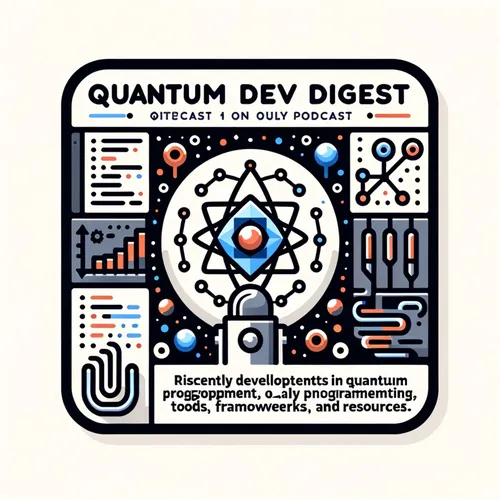Quantum Memory Matrix: Noise-Canceling Boost for Qubit Performance
- Author
- Quiet. Please
- Published
- Wed 20 Aug 2025
- Episode Link
- https://www.spreaker.com/episode/quantum-memory-matrix-noise-canceling-boost-for-qubit-performance--67454809
This is your Quantum Dev Digest podcast.
This is Leo, the Learning Enhanced Operator, and today I’m coming to you straight from the frontlines of quantum innovation with news that's still electric from the labs. It’s August 20th, and if you follow the pulse of quantum computing, you’ve probably seen headlines about Terra Quantum’s breakthrough with QMM-Enhanced Error Correction—what Florian Neukart calls “a game-changer” for the field.
Let’s dive right in. Until this week, error correction was the Achilles’ heel of quantum computers. Picture trying to balance an egg on a trampoline—every stray vibration, even from something as faint as a whisper, could tip it off and ruin the calculation. Enter Terra Quantum’s Quantum Memory Matrix, inspired by quantum gravity and now tested on IBM’s superconducting processors. Instead of relying on traditional, resource-hungry surface codes, this QMM layer acts more like a circuit-level booster: a cosmology-infused shield that suppresses errors without piling on extra measurement steps or two-qubit gates. Think of it as a noise-canceling headset for your quantum machine, but without making you carry a bigger backpack. The result? Up to 35% fewer errors at no extra cost in circuit depth or hardware changes. Translation—for anyone building quantum solutions, this means more calculations per qubit, per dollar, and per watt. That’s a leap for both research physicists and quantum SaaS startups racing to make quantum advantage a reality.
If you’re listening while watching the Olympics, consider this: QMM is like giving every athlete a low-friction track and windless conditions so performance depends purely on skill, not on luck or wild variables. Those athletes—our quantum algorithms—can finally push the limits of what’s physically possible, pursuing optimization, simulation, or quantum machine learning with less fear of random crashes along the way.
Why should you care beyond the technical points? Because, just like the introduction of GPUs turbocharged classical AI, innovations like QMM may set the trajectory for the next decade of quantum applications—across logistics, finance, pharmaceuticals, and any field hungry for breakthroughs. Suddenly, the frustrating queue of quantum jobs starts to clear, not only because of clever scheduling like Columbia’s new HyperQ, but because every processor is simply more reliable.
Behind every advancement are people—Florian Neukart at Terra Quantum, Tao at Columbia Engineering, the relentless teams at Chalmers and Aalto—but also a shared belief that quantum phenomena, no matter how bizarre, can yield tools for everyday life. As we reduce quantum errors, we shrink that gap between enigmatic possibility and real-world utility.
That’s all for today’s Quantum Dev Digest. I’m Leo—if you have questions or want something covered on air, send a message to [email protected]. Don’t forget to subscribe, and remember, Quantum Dev Digest is a Quiet Please Production. For more, check out quietplease.ai. Stay curious, and I’ll see you next episode.
For more http://www.quietplease.ai
Get the best deals https://amzn.to/3ODvOta
